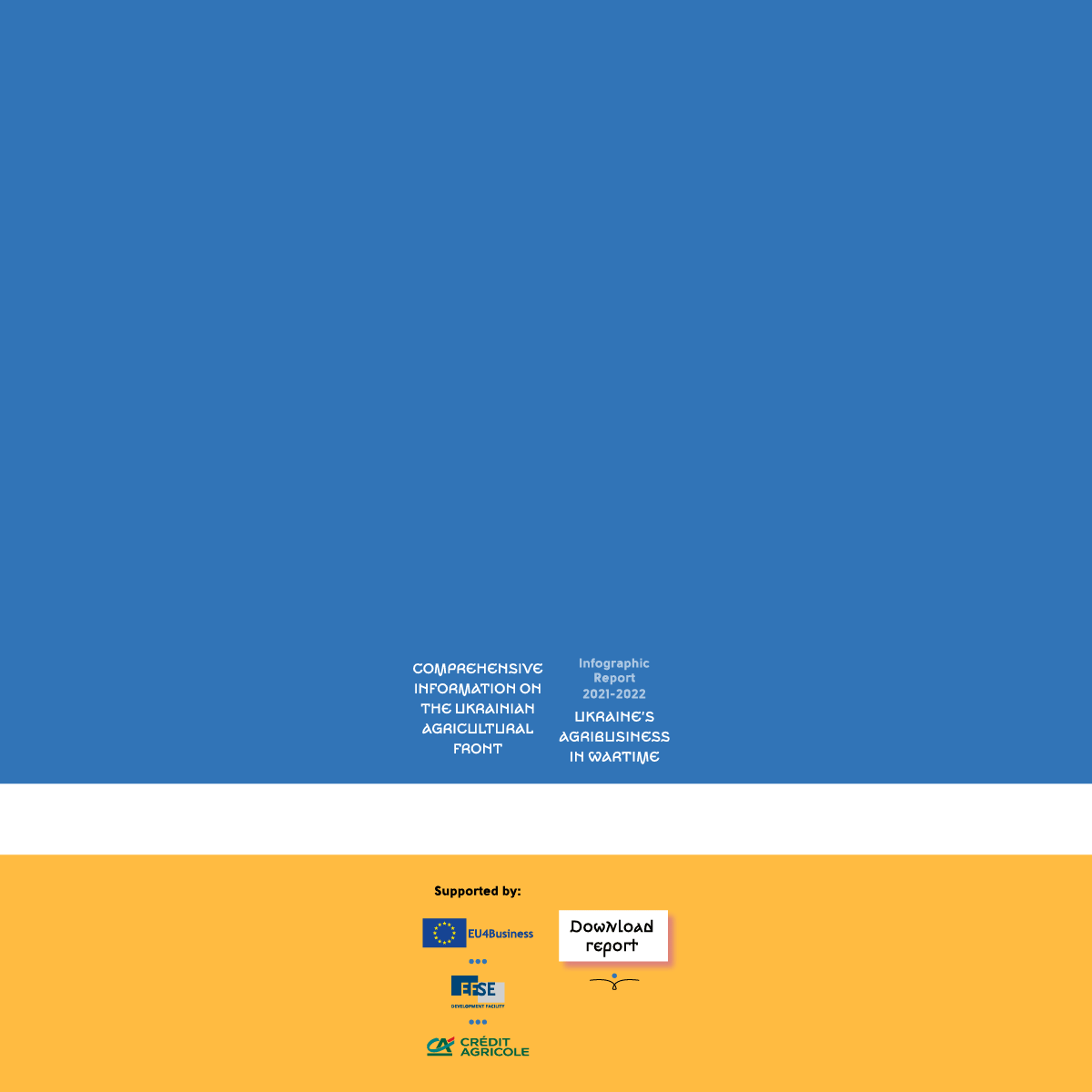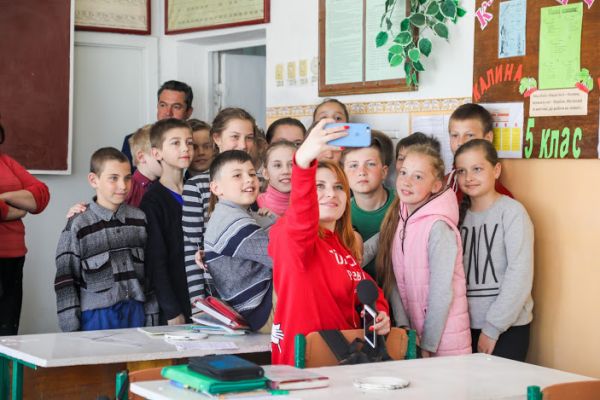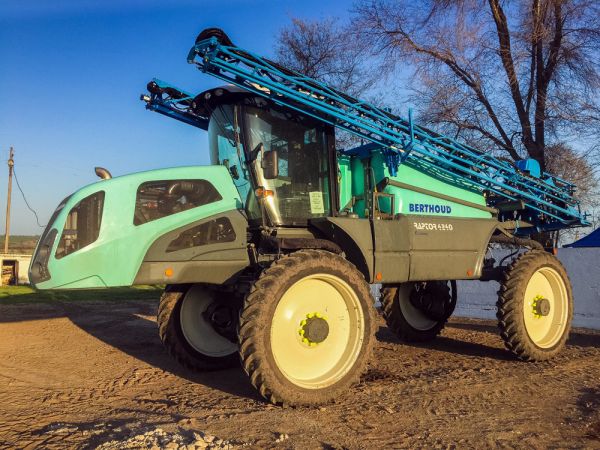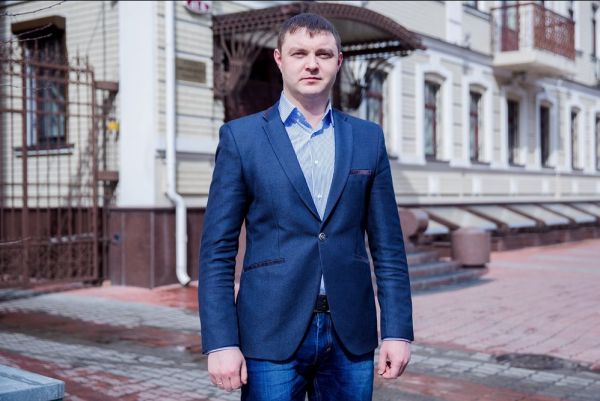To learn more about agribusiness in Ukraine, follow us on Facebook, on our channel in Telegram, and subscribe to our newsletter.
Invisible Latifundist: Agrain Coming Back
Ukrainian agricultural sector knows many companies that own thousands of hectares of land property and bring considerable profit, and yet chose to stay under the radar. One such “dark horse” of the market is an agricultural holding Agrain.
The holding used to be in the top ten of the Top 100 Latifundists of Ukraine with around 130 thousand hectares of land. Over the past years, it rarely featured in the news, which mostly was focused on the company’s struggle against law enforcement agencies. Last year the conflict escalated to the point that the holding announced its plans to exit the Ukrainian market. There was no news of the company after the announcement.
Related story: Agrain Terminated Its Business in Ukraine
Latifundist.com conducted its own investigation to find out if one of the largest agricultural companies continues its operations in Ukraine. We contacted the holding representatives under the guise of vendors and shareholders, studied the record of court decisions and had personal meetings with Agrain employees.

"The patient is rather alive…"
“Agrain is alive and well. It still owns around 100 hectares of land. The company still operates in the same regions. They neither expand nor reduce its land bank,” informed Latifundist.com a top-manager of one of the biggest agricultural companies which operates in the same regions as Agrain.
A top manager of one of the companies working in the Kharkov region, where Agrain cultivates 17.7 thou. hectares of land, told us about the specifics of Agrain’s operations in the regions and its cooperation with the local cluster of his holding.
“I had no issues with the company over business matters. For instance, last spring we bought seeds from them and rented their machinery in the harvest time. All the services were provided efficiently and on time. If further terms are mutually beneficial, we will continue our cooperation. Agrain has been successfully operating in the Volchansk region for many years already,” he emphasized.
Market participants told a different story of one of the largest domestic latifundist’s state of affairs.
“We wanted to cooperate with them but we decided to put it on hold when we learned that they were targeted by the “prosecutor’s” people. We shall wait till it is over,” explains a representative of a port operator in the sea trading port Yuzhny.
To gather inside information, the journalists of Latifundist.com made phone calls to publicly owned enterprises of Agrain. We introduced ourselves as crop protection suppliers, machinery distributors and farmers who would like to use one of their elevators to store newly harvested grain. Here is a transcript of our talk with Yuriy Popov, CEO of Elevator Agro.
- This is “Kolos-2016” farm. We need to dry corn grain. Is there a way you could help us with it?
- Of course. We provide a range of services including grain reception, cleaning, storage and sanitation. We can even ship the grain to the destination points afterwards.
- How much will corn drying cost?
- Well, let’s see… UAH 42 per 1 tonne-percent VAT including.
- Do you work with other grain as well?
- Soybean, rapeseed, sunflower but corn is our specialty.
- Okay, thank you. We need to think it over. Are you sure, you can receive the grain? We’ve heard rumors, you know…
- Never mind the rumors. We successfully operated last season.
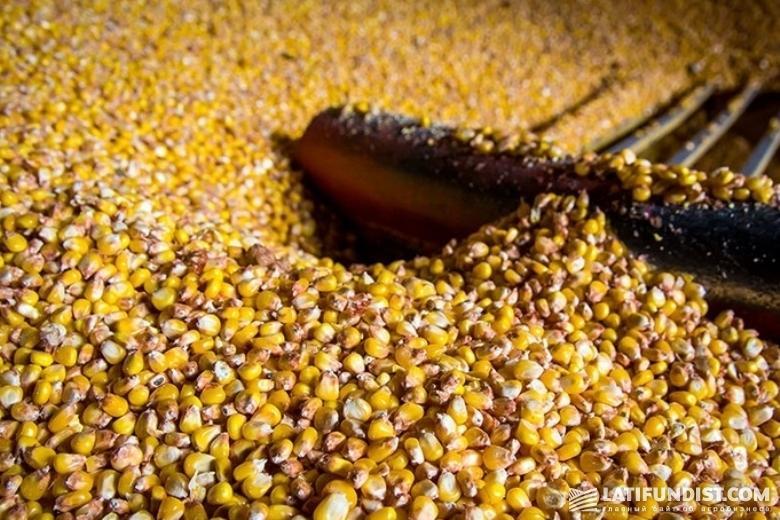
Next, we called possible partners of Agrain. For starters, we decided to see what official representatives of Ukrainian manufactures of agrochemicals have to say. Syngenta Business Development Manager CIS Helen Fairlamb told us that Agrain timely provides due payments to Syngenta every year.
“We’ve been providing financial solutions to Agrain since 2015. Like other agricultural companies, they buy products from our distributors. Earlier, they cooperated under partial credit arrangements using forwarding programs, i.e. Agrain farms engaged with us in forward contracts for corn, wheat and rapeseed when the company applied for buying seeds and plant protection in spring. In autumn, they would deliver us the product and pay off its debt to the distributors that way. Owing to well-developed logistics, they comply with the terms of the forward contracts and deliver the grain in full and on time,” explained Helen Fairlamb.
She added that the company had been the largest supplier of corn and wheat using the Syngenta forward contracts in Ukraine over the last two years.
Apart from that, having contacted a number of plant protection supplies distributors, we learned that Agrain was only using the services of BASF, Bayer, and Syngenta. The company purchases both seeds and agrochemicals from official suppliers.
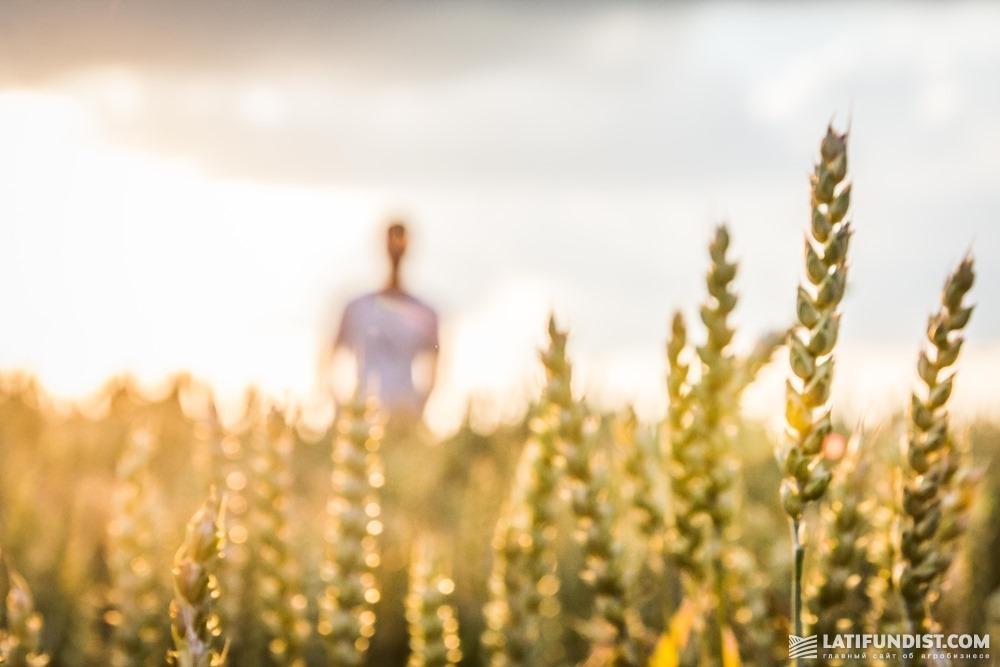
Not only does Agreyn have its very own machinery, it also rents vehicles to harvest crops on time. At times lessors may fall prey to holdings but it is not the case with Agrain. This is what a service provider "Dyadya Sasha", a company specializing in combine harvesting, told us about cooperating with the holding: “We harvested crop with 12 of our combines. We did our job; they stuck to their end of the bargain. We plan to continue working with them in the future.”
Other risks
In the past few years, the company featured in a criminal case, which was also covered by Latifundist.com.
Related stories:
- Court Seized Agrain Suspect Property
- Court Seized Another Agrain Suspect Property
- Kaplin: Agrain Case Needs to Be Over With
Records of court decisions indicate that there are no ongoing criminal proceedings against the holding right now. The case was closed. This was confirmed by the company itself.
Related story: Agrain Disclosed Court Proceeding Details
Given the company’s past, we were sure we would need to work hard to gather the least of information about the holding. Nevertheless, we decided to address the company directly alongside other lines of investigation. To our surprise, we got a prompt reply from the company. Agrain’s press office informed us that by the beginning of December 2017, the courts of Ukraine released the property and corporate rights of the holding since the case against the holding was closed. But where did it all start? Using the information we gathered talking to Agrain representatives, we will try to reconstruct the order of the events over the past 6-7 years.

2011-2012
Ms. Lesya Sofienko wished to join Agrain as an investor. She failed to invest the agreed amount by December 31, 2013. The owner of the holding initiated a court hearing and terminated the contract with her based on the decision of the commercial court.
August 12, 2015
Ms. Sofienko hired a solicitor to file a complaint with the prosecutor, which commenced a criminal investigation. She claimed to have been illegally deprived of 50% of corporate shares in 19 farms owned by Agrain. The pretrial investigation was conducted by the chief Investigation Department of the Prosecutor’s General Office of Ukraine.
December 26-27, 2016
Following the transfer of the criminal proceedings to Kiev Prosecutor’s Office and involvement of the Main Directorate on Corruption and Organized Crime Counteraction of the Security Service of Ukraine, 13 people were reported suspects including a number of senior officials of the company. The court ruled to seize corporate rights of the company as well as its movable and immovable property.
October 20, 2017
After many court hearings, evidence provided by the Defense Attorney of Agrain and several legal examinations, the case against the company was closed.
November 27, 2017
The prosecution office officially closed the case opened upon the request of Lesya Sofienko.
Given the nature of the criminal proceedings the company had to undergo and Ms. Sofienko’s ways of trying to get on the company’s board, Agrain decided to press charges against her.
“Currently Kiev Prosecutor’s Office is conducting a pretrial investigation against L.S. Sofienko and her solicitor S.M. Zubchenko for falsely accusing the company of fraud,” told us an Agrain representative.
Agrain today
The company confirmed that 17 of its farms are operating in the Zhytomyr, Kharkov, Odessa, Cherkasy, and Kiev regions. The holding cultivates over 110 thousand hectares of land.
“2017 was a difficult year for Agrain. We seriously considered exiting the market. But we did not only stood strong but also strengthened our positions. Crisis — is an opportunity, it puts your priorities into perspective and forces to optimize your work. We are glad to inform that all the charges against Agrain were dropped. We enter a season with confidence,” told us Pavel Mamin, CEO of Consult Agro (editor’s note: Consult Agro is a managing company of the holding).
Yuriy Klochkov, Chief Agronomist of the company, added that the main sorts of grain for Agrain remain winter rapeseed, wheat and barley as well as sunflower, corn and soybeans, i.e. the strategy of crop rotation includes equal amounts of winter and spring grains with winter rapeseed being of top priority for the holding.
In an open conversation with Yuriy Popov, CEO of Elevator Agro, we learned that the company had transshipped 250 thousand tons of grain and 20 thousand tons of sunflower seeds over the last harvesting season. It should be pointed out that the company is annually increasing transshipments of the raw material. For instance, since the harvest began, the company received 130 thousand tons of grain from third-party farms compared to 80-90 thousand tons received last season.

“Our elevator is one of the few elevators which can ship grain to agreed destinations. It is very relevant these days given the shortages of rolling stock. Elevator Agro can load 54 wagons a day. People are ready to wait in line for it,” summed Yuriy Popov.
Apart from its agricultural branch, Agrain is also famous in the market for its logistics. For several years, a logistic company Agrain Trans was part of the holding providing efficient transportation of grain and oil crops with modern vehicles. Latifundist.com contacted one of the firm’s partners — a grain trader Yug-Reserv.
“First of all, we try to give the Ukrainian famer a fair price for his product. Second, we have no deals “under the table,” we operate legally and in the open. Third, we pre-pay the producer when we verify the quality of the product. Last, we provide the producer with transportation to take the harvest from the fields. Agrain Trans has been our transportation provider for a long time. They give us vehicles; we give them money. They are always accurate and efficient,” commented Sergey Ignatenko, a representative of Yug-Reserv.
Latifundist.com will continue monitoring the news of Agrain. We also announce 2018 a year of uncovering and introducing no-name latifundists to our readers.
Aleksei Beskletko, Latifundist.com
